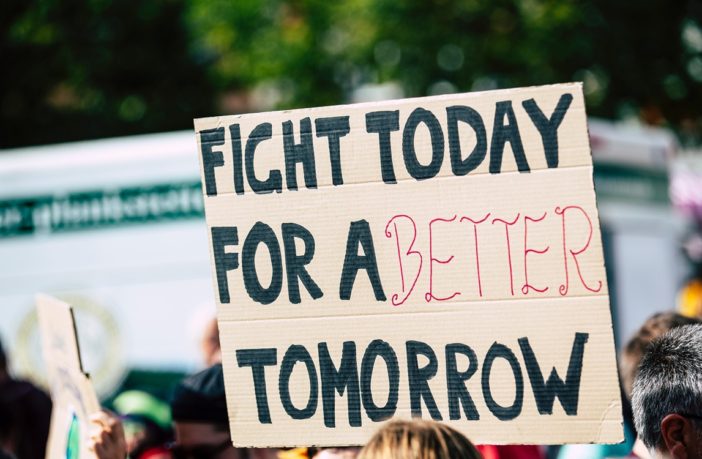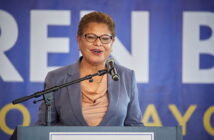June is National Gun Violence Awareness Month. Just over 150 days of this year have gone by. For many, there have also been days of sorrow and deep loss. Just this year, there have been more than 260 deaths from mass shootings across the United States. That means that more people have been killed by the uniquely American disease of gun violence than there have been days of the year.
For more than a decade, over and over again, the American public witnesses members of their communities, family, friends and strangers alike mowed down by bullets from military-grade weapons. We saw it at Robb Elementary in Uvalde, Texas; in a local market in Buffalo, New York; in an LGBTQ+ nightclub in Colorado Springs, Colorado, in a church in Charleston, South Carolina and the list goes on. And on. And on.
That isn’t to say that other countries don’t suffer issues of gun violence. In 2022 a man opened fire in a Copenhagen mall, killing three and wounding four. In 2019, 51 people were killed in two simultaneous shootings at separate mosques in Christchurch, New Zealand. But the U.S. by far outperforms other nations with its frequency of mass shootings. According to the Pew Research Center, in 2021 nearly 49,000 Americans died as a result of gun violence, both from mass shootings and from suicide.
While it’s easy to become demoralized and discouraged facing these grim statistics, there are people across the country working to combat this complex cultural phenomenon. People like X González, who survived the Marjory Stoneman Douglas school shooting in Parkland, Florida; people like Sue Klebold, whose son perpetrated the mass shooting in Columbine, Colorado, in 1999; and people like Tina Strawn, a Black mother from Texas who co-founded Here4TheKids, a grassroots organization dedicated to ending gun violence across the U.S. using methods inspired by the U.S. Civil Rights movement in the 1960s.
“For the past several years, I have been leading people on anti-racism weekends to Montgomery and Selma, visiting places like the Equal Justice Initiative’s lynching memorial and their Legacy Museum: From Enslavement to Mass Incarceration, as well as walking across the Edmund Pettus bridge,” says Strawn, an anti-racism advocate and executive producer of the educational race and oppression documentary Deconstructing Karen. “I have spent so much time in these historical places for the purpose of learning and teaching about our Black civil rights leaders of the 1960s and their varied methods of peaceful, non-violent, protest and action. I have been inspired by their commitment, perseverance, sacrifice and actions, which I believe are the blueprints to making social change.”
As the rate of mass shootings increases, the issue of rampant gun violence became more and more pressing for Strawn and her co-founder Saira Rao as they found themselves regularly discussing the devastation of school shootings and lack of action from American lawmakers.
“(We) chose gun violence because guns are the number one killer of kids in America. As mothers, over the past year, she and I have been having regular conversations about the devastation of school shootings,” says Strawn. “We believe our elected officials and lawmakers have abandoned us. We realize that despite the fact that we have more gun legislation in this country than ever before, guns are killing our kids more than anything else. Nothing has worked. And with there being more mass shootings than days in the year so far, we have to confront why laws can’t protect our kids, and yet laws protect guns. We must face what the Second Amendment was really about so we can create laws that serve us, and protect all of us, today.”
Strawn has spent the past eight weeks organizing a sit-in at the Colorado state capitol, evoking the power of the Greensboro sit-ins in North Carolina in 1960. While Strawn is African American, the sit-in, taking place today, June 5, 2023, is comprised of 25,000 white women demanding for Colorado Governor Jared Polis to sign an executive order banning all guns and implementing a buy-back program for Coloradans’ guns.
“We wanted to distinguish and communicate that this is not a march nor a parade. There will be no stages, no speakers, no permits. Just 25,000 cisgender, non-disabled white women who refuse to continue to normalize the trauma all Americans are experiencing due to the explosion of gun violence and the rate at which guns are killing our kids,” says Strawn. “The challenges have come because what we are doing in our strategy is unexplored and unprecedented and so people have had to expand their imaginations in order to believe that this is going to work and that we can really demand a ban on all guns.”
“Why white women?” some might ask. Well, a part of Strawn’s strategy for this sit-in accounts for maximizing the safety of everyone involved in the anti-gun violence movement.
“We are asking white women, in particular, to participate in this act of civil disobedience because historically and statistically, white women are the demographics that are the least likely to be brutalized by police,” explains the activist. “Black people have been fighting for our rights for generations and we are always the ones who are on the frontlines demanding justice. Here 4 The Kids believes it is time for white women—specifically cisgender and non-disabled white women, to put their bodies, privilege and power on the line to fight for change.”
Strawn says that asking white women to stand on the front lines actively combats the roots of the Second Amendment planted firmly in white supremacy.
“[The Second Amendment] was written to empower slave-owning white men to use guns to uphold their supremacy and power to protect themselves against slave uprisings,” says Strawn. “The people who wrote the Second Amendment are the same people who in the same document wrote that enslaved Africans and their descendants were only 3/5th human. We no longer want to be governed and ruled by archaic, racist laws, so we aim to change them.”
Obviously, asking only white women to physically show up to the capitol in Denver doesn’t mean that other groups can’t participate. There is a remote campaign for people of various marginalized communities and identities to join alongside the women who will present.
“Here 4 The Kids welcomes everyone to participate because we don’t want to take away anyone’s agency or autonomy,” adds Strawn. “However, we are asking that those who are part of the most marginalized and the most vulnerable communities NOT show up in Denver because we can’t guarantee anyone’s safety, and the safety of our communities is our top priority.”
Many Americans want to eradicate people dying at the hands of gun violence, but many people have different opinions on exactly how that will get done. People like Strawn—organizing and rallying average Americans—are doing a significant amount of hard work that is required to solve such a complex issue.
“It’s exciting watching women wake up from indifference and despair and decide to fight,” continues Strawn, “It’s exciting and hopeful seeing how many people want to believe that we could live in a country that isn’t being ravaged by gun violence and then watching them allow and follow their faith to lead them to take action to create that kind of world where our kids can go to school without the fear or threat of being killed in a shooting. Engaging with my community in this way by leading this organization feels like helping return power to the people.”



